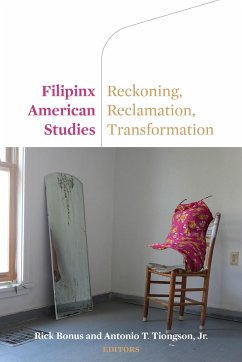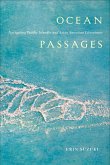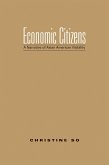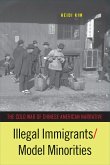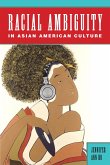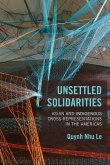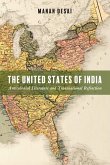This volume spotlights the unique suitability and situatedness of Filipinx American studies both as a site for reckoning with the work of historicizing U.S. empire in all of its entanglements, as well as a location for reclaiming and theorizing the interlocking histories and contemporary trajectories of global capitalism, racism, sexism, and heteronormativity. It encompasses an interrogation of the foundational status of empire in the interdiscipline; modes of labor analysis and other forms of knowledge production; meaning-making in relation to language, identities, time, and space; the critical contours of Filipinx American schooling and political activism; the indispensability of relational thinking in Filipinx American studies; and the disruptive possibilities of Filipinx American formations. A catalogue of key resources and a selected list of scholarship are also provided. Filipinx American Studies constitutes a coming-to-terms with not only the potentials and possibilities but also the disavowals, silences, and omissions that mark Filipinx American studies. It provides a reflective and critical space for thinking through the ways Filipinx American studies is uniquely and especially suited to the interrogation of the ongoing legacies of U.S. imperialism and the urgencies of the current period. Contributors: Karin Aguilar-San Juan, Angelica J. Allen, Gina Apostol, Nerissa S. Balce, Joi Barrios-Leblanc, Victor Bascara, Jody Blanco, Alana Bock, Sony Coráñez Bolton, Lucy Mae San Pablo Burns, Richard T. Chu, Gary A. Colemnar, Kim Compoc, Denise Cruz, Reuben B. Deleon, Josen Masangkay Diaz, Robert Diaz, Kale Bantigue Fajardo, Theodore S. Gonzalves, Vernadette Vicuña Gonzalez, Anna Romina Guevara, Allan Punzalan Isaac, Martin F. Manalansan IV, Dina C. Maramba, Cynthia Marasigan, Edward Nadurata, JoAnna Poblete, Anthony Bayani Rodriguez, Dylan Rodríguez, Evelyn Ibatan Rodriguez, Robyn Magalit Rodriguez, J. A. Ruanto-Ramirez, Jeffrey Santa Ana, Dean Itsuji Saranillio, Michael Schulze-Oechtering, Sarita Echavez See, Roy B. Taggueg Jr.

